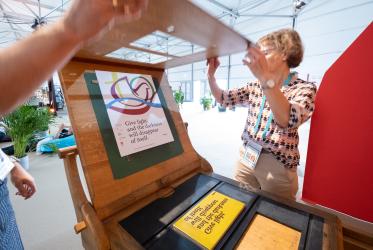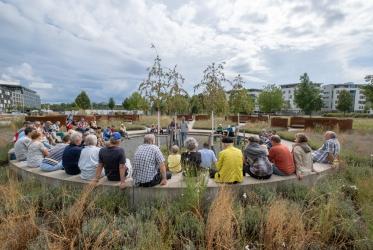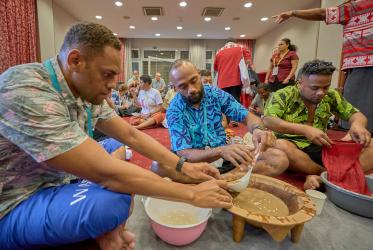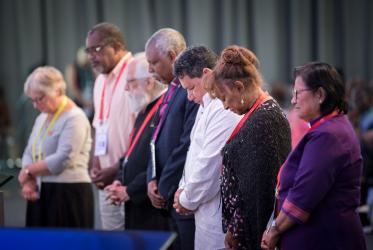Displaying 141 - 160 of 1513
World’s churches converge on Germany city of Karlsruhe to pray and act
16 September 2022
Workshop explores how interreligious dialogue brings trust and respect
15 September 2022
WCC extends condolences upon passing of Dr Gabriel Habib
13 September 2022
Las regiones aportan sus perspectivas a la 11ª Asamblea del CMI
07 September 2022
Promoting human dignity through art
06 September 2022
WCC 11th Assembly elects eight new presidents
05 September 2022
Regional perspectives brought to the 11th Assembly
05 September 2022









